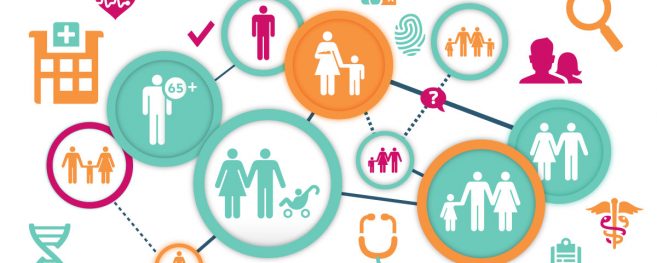Improving Value-Based Care Outcomes With Social Determinants

To those unfamiliar with the harsh-sounding concept of “social determinants” in any aspect of healthcare, it might at first seem peculiar (at best) and dangerous (at worst). Then, when it involves payment models like value-based care that are used by Medicare, for instance, it becomes even more daunting. After all: Shouldn’t patients be recognized and treated based strictly on their healthcare needs rather than whatever “social determinants” might skew a decision one way or another?
One should not be alarmed or suspicious of “social determinants,” as it is not as ominous as it may seem. Most simply, the idea is that there is no one-size-fits-all solution for treating patients, especially those with chronic illnesses—because no two patients are alike. One set of differentiators is “social determinants,” which, as highlighted in an HFMA.com article, are defined by the U.S. Centers for Disease Control and Prevention (CDC) as “the complex, integrated, and overlapping social structures and economic systems that are responsible for most health inequities.”
Or, put another (and simpler) way by Modern Healthcare.com:
“There’s no question that race, gender, socio-economic status and health literacy influence a patient’s healthcare access, cost and outcomes.”
And that is how “social determinants” have become part of the discourse in healthcare, especially for those responsible for their hospital’s patient population management. But what it doesn’t answer is why.
There are two ways to approach this. The first is in a more general context, best expressed by Healthcare IT News.com, in which it said a reason “healthcare providers are starting to catch on to the importance social determinants” is because “the pressure is on for providers to start thinking more about what happens outside of a doctor’s office and how it affects the patient.”
That “pressure” leads to the second approach, which is more specifically related to the value-based care payment model. As we explained in one of our earlier blogs, “Healthcare Payment Reform: Fee for Service vs Value-Based Care,” value-based care “is assessed, and rewarded, based upon the value practices and procedures offer patients.” And because the Centers for Medicare & Medicaid now use the value-based care model for reimbursing certain treatments (which we analyze in another of our blogs, “How are MACRA and CJR Connected?,” the pressure has become more intense.
Put bluntly: If adding data from social determinants is indeed part of a solid patient management strategy that theoretically can directly improve outcomes—both for the patient’s health and the hospital’s finances—a new question arises: How much of a difference could it actually make? Is it worth the effort and resources?
Healthcare Informatics.com suggests that social determinants could have significant positive impacts on risk stratification models. It cited a report that said traditional risk models “only account for 10 percent of a patient’s overall health outcomes,” as where social determinants “account for about 70 percent of health outcomes.”
Naturally, something that can cause a 60-percent boost to patient outcomes probably isn’t an easy technique to adapt. The aforementioned Modern Healthcare.com article verified that notion when it said:
“What’s still fuzzy [about social determinants] is an understanding of which factors are within a provider’s control, and how to adjust for these factors in value-based payments.”
Until a universal set of best practices emerges for integrating social determinants into a population health management strategy, there are some fundamental guidelines that can be used, such as the following shared in the aforementioned HFMA.com article:
• Conduct a community health needs assessment
• Collect diverse, relevant data pertaining to the population
• Stratify patients according to risk
• Implement solutions based on the findings
Derek Rudnak is a freelance healthcare marketing content creator that frequently contributes exclusive blogs to Sequence Health.
Sequence Health is a recognized leader for innovative patient management solutions—which includes its Platform as a Service (PaaS), Sequence. To learn more about how Sequence can help you improve patient outcomes, please contact us.





